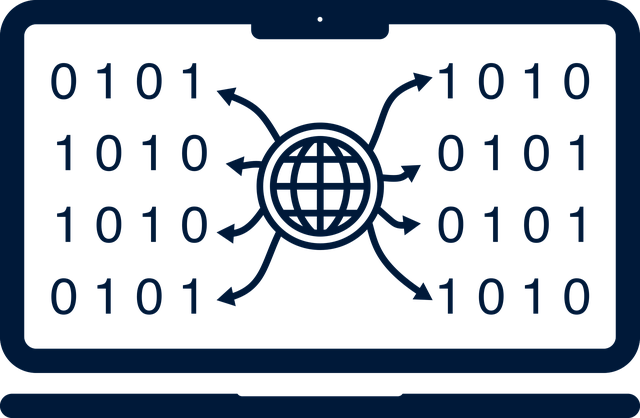The UK Code of Conduct and Ethics requires precise and culturally sensitive translation to maintain its integrity when adapted for multilingual audiences. Translation service providers specializing in this field must be well-versed in both the source and target languages, as well as the nuances of cultural and ethical contexts. A successful translation not only captures the original text's intent but also adapts it to resonate with the target audience. This is particularly important for multinational corporations operating in the UK, where maintaining compliance with British standards and legal requirements is essential. By leveraging expert linguists and subject matter experts who understand the complexities of legal and ethical language, organizations can ensure their codes of conduct are both legally compliant and culturally relevant on a global scale. This process of localization through UK Code of Conduct and Ethics translation services is critical for promoting trust, maintaining integrity, and ensuring compliance across diverse linguistic and cultural business environments.
navaling the complexities inherent in the translation process, this article delves into the critical domain of translating codes of conduct and ethics with precision, particularly focusing on the nuances of UK Code of Conduct and Ethics translation services. As organizations expand globally, ensuring that their ethical frameworks are accurately conveyed across diverse linguistic and cultural landscapes is not just a task but a cornerstone for maintaining integrity and compliance. We will explore the key challenges faced in this endeavor, the indispensable role of professional translators, and the strategies that guarantee the fidelity of ethical principles in different languages. Additionally, we will discuss the legal implications, technological advancements, and best practices that underscore the importance of clarity in these translations. Through a series of case studies, training insights, and future trends analysis, this article aims to provide a comprehensive guide for achieving clear, consistent, and contextually relevant translations that uphold the original intent of the UK Code of Conduct and Ethics, thereby safeguarding an organization’s reputation on the global stage.
- The Necessity of Precision in Translating Codes of Conduct and Ethics
- Understanding the Scope of UK Code of Conduct and Ethics Translation Services
- Key Challenges in Translating Codes of Conduct Across Languages
- The Role of Professional Translators in Ensuring Clarity
- Cultural Nuances and Their Impact on Code Translation Accuracy
- Strategies for Effective Translation of Ethical Principles
- Legal Considerations and Implications in Code Translation
- Case Studies: Successful Translations of the UK Code of Conduct
- Best Practices for Maintaining Integrity in Translated Codes
- Selecting the Right Translation Services for Your Code of Conduct Needs
The Necessity of Precision in Translating Codes of Conduct and Ethics

When organisations operating in diverse global markets need to communicate their codes of conduct and ethics, precision in translation is paramount. The UK Code of Conduct and Ethics translation services play a crucial role in ensuring that the values, principles, and standards that guide an organisation’s operations are accurately conveyed across different languages and cultures. Translation errors can lead to misinterpretation or even legal complications if the translated codes do not align with local laws and regulations. Therefore, it is essential to engage services with a proven track record in handling sensitive and complex language tasks. These specialists employ a blend of linguistic expertise and cultural understanding to produce translations that maintain the original intent and meaning, thereby upholding the integrity and authority of the codes. This meticulous approach not only facilitates compliance but also fosters trust among stakeholders worldwide, as they can be confident that the ethical standards adhered to by the organisation are clear and universally understood.
Understanding the Scope of UK Code of Conduct and Ethics Translation Services

In the realm of business and governance, adherence to codes of conduct and ethics is paramount for maintaining trust and ensuring ethical practices are upheld. The UK Code of Conduct and Ethics, a comprehensive set of guidelines, plays a critical role in this aspect. However, its relevance extends beyond the domestic sphere, as businesses increasingly operate on an international scale. This is where the expertise of UK Code of Conduct and Ethics translation services becomes indispensable. These services facilitate the accurate and culturally nuanced transfer of ethical standards from English to other languages, ensuring that the principles and expectations outlined in the original text are preserved in translation. The translation process involves not just a linguistic conversion but also an understanding of cultural contexts and legal requirements, which are essential for the translated document to hold the same integrity as the source material.
Furthermore, the UK Code of Conduct and Ethics translation services are adept at navigating the complexities associated with various industries and sectors. They provide tailored solutions that cater to the specific needs of each client, ensuring that the translated codes are relevant and applicable within the context of the target language and culture. This level of specialisation is crucial for maintaining the effectiveness and legal compliance of the original text, thereby upholding the integrity and reputation of businesses operating globally. With a focus on accuracy, reliability, and cultural sensitivity, these translation services bridge the gap between UK standards and international practices, ensuring clarity and understanding across borders.
Key Challenges in Translating Codes of Conduct Across Languages

Navigating the nuances of language presents significant challenges when translating codes of conduct and ethics from one language to another. The UK Code of Conduct and Ethics translation services must be adept at conveying ethical principles that are deeply rooted in cultural contexts. A primary challenge is ensuring that the core values and precepts remain consistent across translations, despite differences in linguistic structure and idiomatic expressions. This requires a deep understanding of both the source and target languages to maintain the original meaning without introducing ambiguity or cultural bias.
Furthermore, translation services must contend with the complexities of legal language, which is often dense with specific terminology. The precision required in legal texts means that even a minor mistranslation can lead to misunderstandings of ethical obligations and compliance expectations. To mitigate this, UK Code of Conduct and Ethics translation services employ experts who specialize in both legal and linguistic fields to provide accurate translations that are faithful to the intent of the original text. This level of expertise ensures that the translated codes serve as effective guidelines for conduct across different cultural and linguistic landscapes.
The Role of Professional Translators in Ensuring Clarity

When organisations operate across international borders, it becomes imperative to communicate their codes of conduct and ethics in a manner that is clear and culturally appropriate for all stakeholders. This is where the expertise of professional translators plays a pivotal role. These experts specialise in not just converting language from one to another but also in adapting content to align with cultural nuances and linguistic subtleties. In the UK, Code of Conduct and Ethics translation services are indispensable for businesses aiming to globalise their operations while maintaining the integrity of their values. These services ensure that the original intent and message of the code are preserved in the target language, which is crucial for legal compliance and for instilling a sense of shared responsibility among employees from diverse linguistic backgrounds.
The translation of codes of conduct and ethics requires a deep understanding of both the source and target languages, as well as the cultural context in which these documents will be used. Professional translators employed by UK Code of Conduct and Ethics translation services bring a level of expertise that goes beyond mere word-for-word translation. They employ linguistic precision, cultural knowledge, and a thorough grasp of ethical frameworks to produce translations that are not only accurate but also resonate with the intended audience. This meticulous approach is essential in fostering transparency and accountability within multinational corporations, ensuring that the principles and standards upheld by the original code are effectively communicated to all parties involved, thereby upholding the organisation’s reputation and integrity on a global scale.
Cultural Nuances and Their Impact on Code Translation Accuracy

When translating codes of conduct and ethics from one language to another, particularly in the context of UK Code of Conduct and Ethics translation services, it is imperative to account for cultural nuances. These nuances can significantly alter the interpretation and application of ethical guidelines across different cultures. For instance, what constitutes acceptable behavior in one culture may be perceived as unethical or even offensive in another. Translators must therefore not only convey the literal meaning of the text but also understand the underlying values and contextual subtleties that inform the original code. This requires a deep understanding of both the source and target cultures, as well as the ethical framework being translated.
The impact of cultural nuances on the accuracy of translated codes is profound, particularly when considering the legal implications and the moral obligations of individuals and organizations. A mistranslation can lead to misinterpretation of rules, which in turn can result in compliance issues or a breach of trust with stakeholders. UK Code of Conduct and Ethics translation services must employ skilled linguists who are trained not only in language but also in the intricacies of cross-cultural communication and ethics. These professionals use their expertise to ensure that the translated code reflects the original’s intent accurately, thus upholding the integrity and efficacy of the ethical standards being communicated. This meticulous approach is essential for maintaining the authenticity and reliability of codes of conduct and ethics in a global context.
Strategies for Effective Translation of Ethical Principles

When translating ethical principles, particularly within the context of professional codes such as the UK Code of Conduct and Ethics, precision and cultural sensitivity are paramount. Effective translation requires a deep understanding of both the source and target languages, as well as the cultural nuances that can influence the interpretation of ethical concepts. To ensure clarity, translators must first be proficient in the language pairs involved, with a special focus on the idiomatic expressions that often encapsulate ethical guidelines. This expertise is not limited to linguistic capabilities but extends to the legal and moral contexts from which these codes originate.
A strategic approach involves a two-tiered process: first, a literal translation to capture the essence of the original text; second, a nuanced adaptation that considers cultural norms and practices within the target audience’s context. This dual focus ensures that the translated code maintains its integrity while becoming accessible and understandable to individuals for whom English is not their first language. Translation services specializing in the UK Code of Conduct and Ethics go beyond mere word-for-word translation, employing a team of experts including legal advisors, ethicists, and native linguists who work collaboratively to produce translations that are both accurate and culturally relevant. This comprehensive approach is essential for organizations operating internationally, as it facilitates compliance with ethical standards across diverse populations.
Legal Considerations and Implications in Code Translation

Case Studies: Successful Translations of the UK Code of Conduct

Companies expanding their operations into the UK often encounter the necessity to translate their codes of conduct and ethics to align with British standards and legal frameworks. The UK Code of Conduct and Ethics, while reflecting a commitment to high moral and ethical principles, requires precise translation to preserve its intent and enforceability. A prime example of successful translation services is observed in the telecommunications sector, where a major multinational corporation required the UK Code of Conduct to be translated into clear, actionable guidelines for its UK-based employees. The translation service provider adeptly navigated cultural nuances and legal specificities, ensuring that the core values and compliance requirements were accurately conveyed in the target language. This meticulous approach enabled the company to maintain a uniform standard of ethics across all its operations, fostering trust among stakeholders and compliance with local regulations. Another instance is within the pharmaceutical industry, where the precision of translation is critical due to the sensitive nature of the work. Here, translation services played a pivotal role in converting the UK Code of Conduct into a document that not only adhered to the letter of the law but also resonated with the ethical ethos of the company. By leveraging expert linguists and subject matter experts, these translation services ensured that the translated code was both legally sound and culturally relevant, thereby facilitating seamless integration of the company’s global workforce into the UK market. These case studies underscore the importance of employing professional UK Code of Conduct and Ethics translation services to achieve clarity and effectiveness in cross-cultural business practices.
Best Practices for Maintaining Integrity in Translated Codes

In the pursuit of clarity and integrity, organizations seeking to translate codes of conduct and ethics, such as the UK Code of Conduct and Ethics, must employ best practices to ensure the translated content accurately reflects the original text’s intent and meaning. A primary consideration is the selection of competent translators who are not only proficient in both languages but also well-versed in the nuances of legal and ethical terminology. This expertise is crucial for a precise translation that maintains the integrity of the source material. Additionally, utilizing specialized translation services with experience in UK Code of Conduct and Ethics translation can significantly enhance the quality of the output. These services often employ a multi-step process, including initial translation by experts, followed by thorough reviews and revisions to ensure consistency, accuracy, and clarity across all translated sections. Furthermore, involving stakeholders from diverse linguistic and cultural backgrounds in the review process can provide valuable insights and help identify any potential misunderstandings or misinterpretations that may arise due to language-specific nuances. By adhering to these best practices, organizations can produce a translation of their code of conduct and ethics that is both comprehensible and respectful of the original’s intent, thereby fostering a culture of integrity and trust within their multilingual workforce.
Selecting the Right Translation Services for Your Code of Conduct Needs

In conclusion, the translations of codes of conduct and ethics are critical to maintaining the integrity and applicability of ethical standards across diverse linguistic and cultural contexts. The UK Code of Conduct and Ethics translation services play a pivotal role in ensuring that these guidelines are not only accurately conveyed but also resonate with the values and norms of the target audience. Recognizing the complexities inherent in this process, including language precision, cultural nuances, and legal implications, calls for the expertise of seasoned professional translators who can navigate these challenges effectively. By adhering to best practices and utilizing strategies that account for both linguistic clarity and cultural sensitivity, organizations can ensure that their codes of conduct are universally understood and upheld. This not only facilitates global compliance but also fosters a shared commitment to ethical principles worldwide, making UK Code of Conduct and Ethics translation services an indispensable resource in today’s interconnected world.



